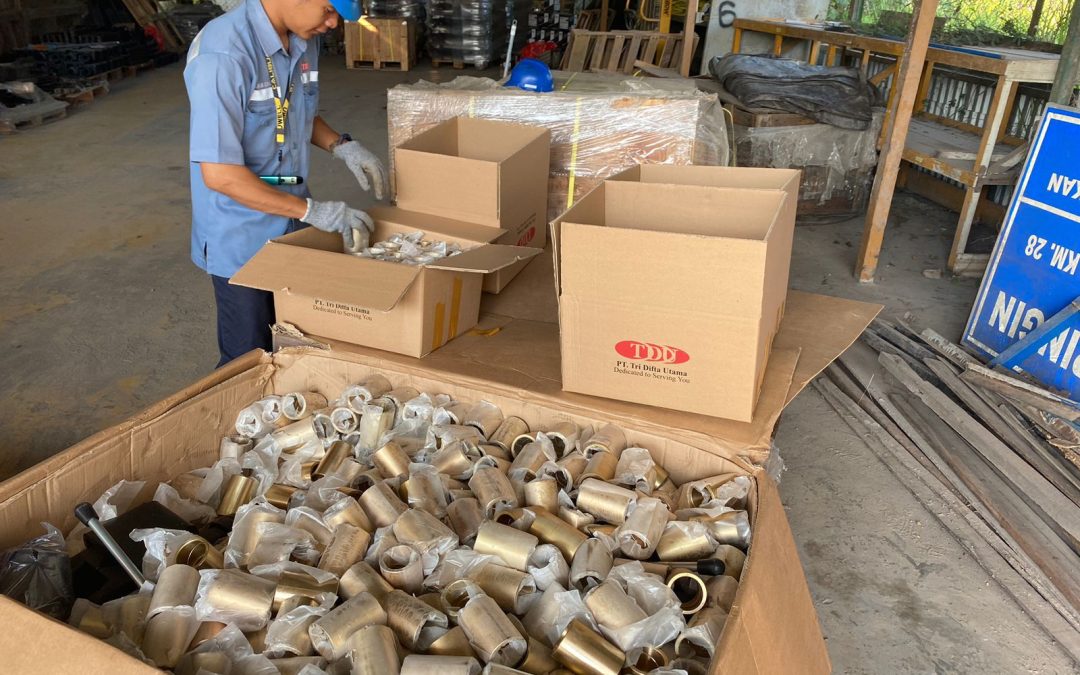In the trailer transportation industry, spare parts inventory management is a crucial aspect that directly impacts smooth operations and work safety. Efficient stock management not only ensures the availability of required spare parts but also prevents unnecessary accumulation that can lead to waste and increased costs. This article will discuss spare parts inventory management strategies to improve operational effectiveness, reduce costs, and ensure work safety.
Proper stock management is essential in the manufacturing industry, including trailer transportation. A well-managed spare parts inventory ensures that every required component is always available when needed. This prevents downtime or production downtime that can result in significant financial losses and delays in job completion. In addition, effective stock management helps in maintaining product quality, as worn or damaged components can be replaced promptly, ensuring that all vehicles are operating at optimal conditions.
A shortage of spare parts can hamper production, cause delays in job completion, and potentially reduce customer confidence in the company. When necessary spare parts are not available, vehicles cannot be repaired or maintained quickly, which can lead to prolonged downtime. Conversely, excess spare parts also cause problems. Excess inventory increases storage and maintenance costs, and risks parts becoming obsolete or unusable, which wastes resources. Both of these situations result in increased operational costs and decreased efficiency.
Stock Management Strategies
Demand Analysis
Demand analysis is the first step in effective inventory management. By understanding the demand patterns for parts, a company can determine the type and amount of stock to hold. Historical sales and usage data for parts can be analyzed to predict future needs. In the context of a trailer transportation company, this analysis might include the frequency of failure or replacement of certain components, as well as routine maintenance cycles.
Forecasting
Demand forecasting involves using historical data and statistical methods to predict future inventory needs. Forecasting techniques such as moving averages, exponential smoothing, and regression can be used to make accurate estimates. Proper forecasting helps companies anticipate fluctuations in parts demand, thereby reducing the risk of running out of or overstocking. In addition, forecasting can also help in budget planning and managing resources more effectively.
Minimum and Maximum Stock Management
Setting minimum and maximum stock levels is an important strategy in stock management. Minimum stock levels ensure that there are always enough spare parts on hand to meet urgent needs, while maximum stock levels prevent waste due to excessive stockpiling. By setting these limits, companies can maintain a balance between spare part availability and cost efficiency. For trailer transportation companies, these levels should be determined based on risk analysis and specific operational needs.
Technology Application
Technology plays a vital role in modern stock management. An inventory management system (IMS) can help in tracking inventory in real time, provide better visibility into stock levels, and facilitate the stock replenishment process. RFID and barcode technologies can be used to speed up the process of identifying and monitoring spare parts. Additionally, integration with Enterprise Resource Planning (ERP) systems allows companies to manage spare part stock more efficiently, reduce human error, and improve data accuracy.

Effective spare parts stock management is essential for trailer transportation companies that prioritize occupational safety. With the right strategies, such as demand analysis, forecasting, minimum and maximum stock management, and technology implementation, companies can ensure the availability of needed spare parts, reduce costs, and improve operational efficiency. This not only supports smooth operations but also contributes to occupational safety and customer satisfaction. Thus, good stock management is an important investment for the sustainability and success of the company.
Read other articles: Long-Term Effects of Quality Spare Parts Investment
